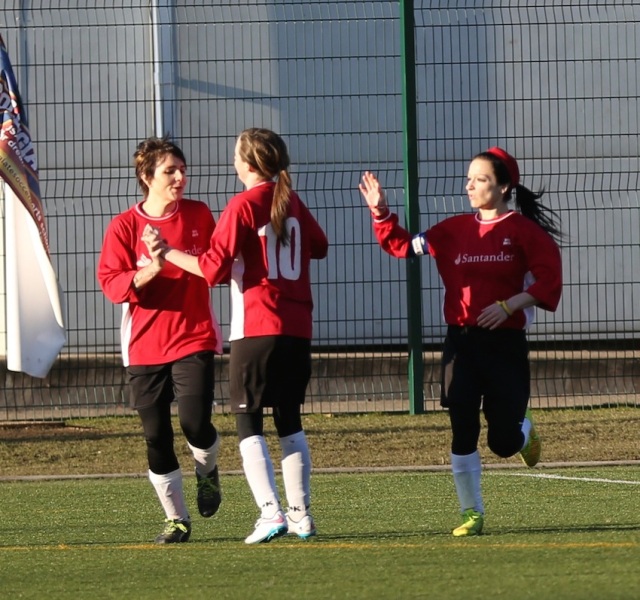
(Click here for part one)
So just what is the more than just a routine storyline that links 2014 Barclays Premier League champions Manchester City and one of the just-ending season’s newest women’s teams in AFC Unity?
The link is being involved in an abandoned match. However, before anyone dismisses the link as tenuous, some abandoned matches have a much more interesting history/background than others.
In both instances we have a match which was abandoned with the away team leading and when the game was “replayed” it was the home team who came out on top and just for good measure, there is more than a “just for the record” story regarding the away goals in the abandoned games.
Where matches are abandoned (and then have to be replayed in their entirety) the statistics from the abandoned game are expunged from the records (note: I am not 100% sure on disciplinary matters should a player have been booked or sent off).
Here, it is the goals which were “scored”, but subsequently expunged from the records which provide the “hard luck” story for the respective scorers.
In the case of AFC Unity, their abandoned match was away to Beighton Magpies at the lowest level of open age women’s football in South Yorkshire, Division Three of the Sheffield & Hallam Women’s County Football League.
With all three divisions being small in size, teams were scheduled to play each other three times, the usual home and away, plus a third meeting, either home or away with all the teams having an equal number of home and away “third” pairings.
The fixture on Sunday 15th February was the third encounter between the teams. Unity, on their competitive debut, had been beaten 7-0 at home by Beighton Magpies in September and it was 8-1 to Beighton when the teams met for a second time at Unity on 8th February.
Lucy Strutt, who scored Unity’s consolation goal a week earlier, gave Unity an early lead at Beighton, but shortly afterwards an injury to Unity’s Sarah Richards caused the game to be abandoned.
As is becoming increasingly common in “Grass Roots” football, players diagnosed as having suffered cruciate injuries (or similarly long term injuries) are advised not to move until qualified medical aid arrives and so with Unity still 1-0 ahead the game was abandoned midway through the first half.
Beighton went on to finish champions, something which became increasingly more likely with each of their victories. Apart from a 2-2 draw in their second game of the season, Beighton scored at least 5 in each of their victories apart from against Rotherham United Development (4-2 away and 4-0 away). While Beighton were awarded walkovers in two instances with a third awaiting confirmation, it is reasonable to assume that they would have enjoyed comfortable victories had the games actually been played.

So, back to Strutt’s goal, the one which was legitimately scored and was valid for around 10-15 minutes. It was the only one conceded in a home league game by Beighton. The final table shows them with an unblemished home defensive record.
Had the game against Unity not been abandoned, the outcome may well have been a home win, but Strutt’s goal would have counted. Searching through records for the League (two seasons for which comprehensive data is not readily available), it is almost certain that Beighton were the first to complete a season without conceding a goal at home.
So the goal that never counted allowed the team which ‘conceded” (it) to set a notable first.
So what about the abandoned game involving Manchester City? Over the years City will have been involved in several abandoned games, but arguably none as famous their FA Cup tie at Luton Town which is among the most notable abandonments in the history of the competition.
Back in 1960-61 City were also in the top tier, the then “old” Division One, but they were not pulling up any trees. True, they had won the FA Cup in 1956 a year after finishing runners up, but otherwise they were not what would be termed a major force.
Drawn away to Luton Town of Division Two, the fourth round tie had the potential to be a banana skin, but City looked well on course for a place in the last 16 when leading 6-2 only for the game to be abandoned because of a waterlogged pitch after 69 minutes.
So, with just under a quarter of the game to go, City had victory snatched from their grasp and to rub salt into their wounds, Luton made the most of their reprieve and won the replay 3-1.
Back to the abandoned 6-2. All six City goals were scored by Denis Law who, at the time of the game, was 20 years old, (turning 21 on 24th February) and had the award existed then, among those who would be shortlisted for the Young Footballer of the Year.
Imagine scoring 6 goals in a cup tie and still not finishing on the winning side? That was Law’s fate. Had the 6-2 game been completed and had those 6 or possibly even more goals by Law counted, then he would be the FA Cup’s all time leading scorer. His record, without those abandoned goals, was 41, a total surpassed by Ian Rush (44) in the 1990s.
Law departed City for Torino later in 1961 for £110,000, but his spell in Italy was relatively shortlived. After just one season, he returned to Manchester, but to United (not City) for a slightly higher fee of £115,000 which was a British record fee (paid).
Law ended the season with an FA Cup winners medal, Manchester United beating Leicester City 3-1 in the final at Wembley, but 1962-63 was a season which saw both Manchester teams finish in the bottom four of the Division One table. City were relegated with United just two places and three points clear of the drop themselves.
At the time of the Luton abandonment Law was the then British transfer record holder at £55,000. How many players in City’s match day starters and substitutes are paid less than that per week now?
The maximum wage for footballers was abolished in January 1961. That maximum was £20 per week. Yes, twenty pounds. The average manual weekly wage was £14. Fulham’s England international Johnny Haynes became the first £100 per week player.
So, as can be seen, prior to the abolition, many other players, even in the top tier, were paid wages not dis-similar to their neighbours, may be even used public transport because they did not drive and those who did own cars, did not have flash motors.
Law’s career was illustrious. At Old Trafford he formed part of the Manchester United “holy trinity” of George Best, Bobby Charlton and Denis Law.
He was European Footballer of the Year in 1964, made 55 appearances for Scotland, scoring 30 goals and played in the 1974 World Cup when Scotland went out at the group stage despite not losing.
Law’s last league game was, ironically, also a game which was abandoned, but the result subsequently allowed to stand. Having moving back to City in summer 1973, Law scored to break the deadlock at Old Trafford on the last day of the 1973-74 season. That goal in the last 10 minutes of the game was followed a few minutes later by a pitch invasion which caused the abandonment.
United were battling against relegation and to this day references to Law’s goal relegating United abound, but relegation would have ensued regardless of the result at Old Trafford that day as the teams above them all gained the points to ensure their own safety with no need for any favours from Old Trafford where City’s 1-0 lead was confirmed as a “final score”.
All images courtesy of Julian Barker

